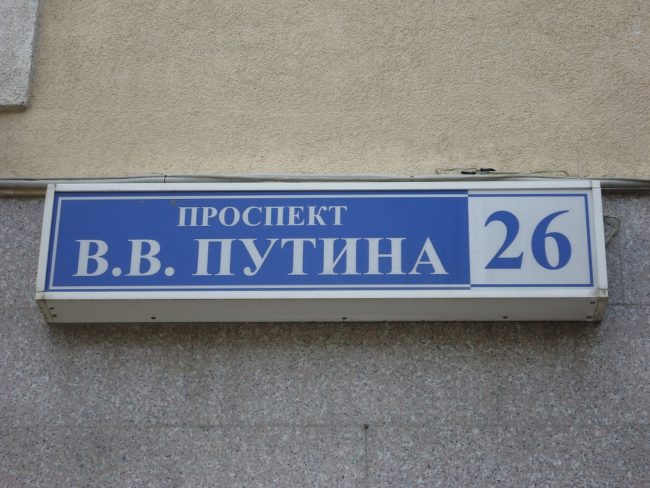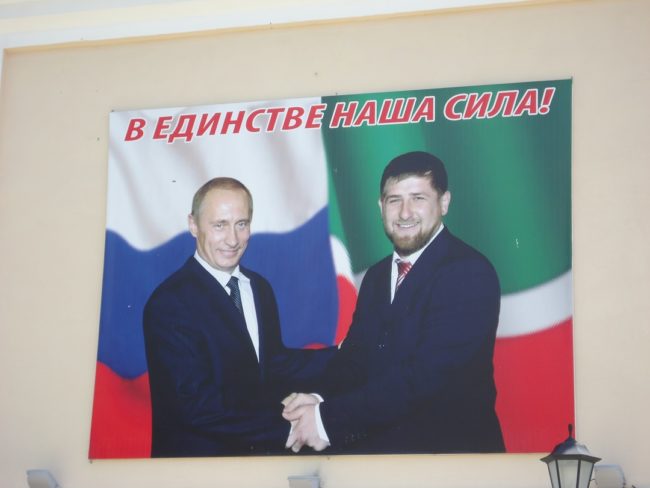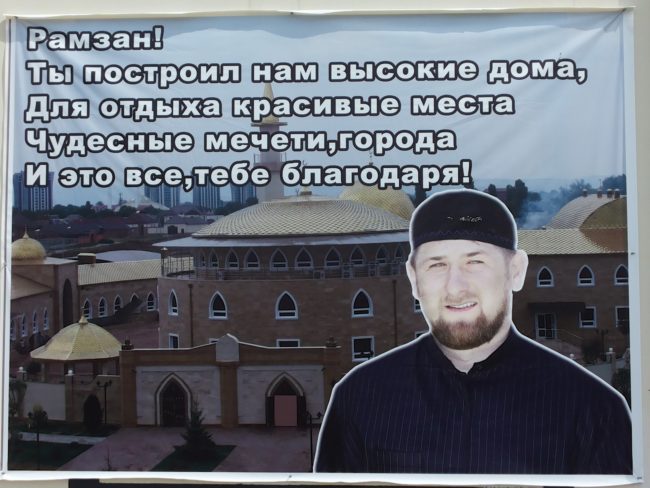![A third Chechen war is inevitable. The only question is when [Opinion]](/_next/image/?url=https%3A%2F%2Foc-media.org%2Fcontent%2Fimages%2Fwordpress%2F2019%2F12%2FGrozny1.jpg&w=3840&q=90)


After enduring two bloody wars and under the extreme authoritarian rule of Ramzan Kadyrov, many in the Kremlin and beyond believe that Chechnya has been pacified. However, after 300 years of resistance, few in Chechnya doubt that the struggle against Russia will continue.
The eighth of March marked the 12th anniversary of the death of Aslan Maskhadov. Maskhadov was the president of the Chechen Republic of Ichkeria — the Chechen secessionist government which emerged following the breakup of the Soviet Union. His death was seen by many in Russia as the turning point in the Second Chechen War. However, despite the war officially being over, Russia must still maintain a huge military contingent in Chechnya to keep it pacified.
Maskhadov was killed on 8 March 2005 during an attack by the Federal Security Service’s elite Alpha Group on a house in the village in Tolstoy-Yurt, some 15 km north of Grozny. Maskhadov was hiding in a bunker when, according to the official version of events, Maskhadov was shot by his nephew and bodyguard, Viskhan Khadzhimuratov. Khadzhimuratov admitted as much during his trial, saying that he did it at his uncle’s request as he didn’t want to be taken alive and experience the fate of Saddam Hussein.
From republic to emirate
Maskhadov’s successor, Abdul-Khalim Sadulayev, was killed during an armed clash only slightly over a year after coming to power, and was followed by Dokku Umarov who abolished the Republic of Ichkeria, replacing it with the decidedly more Islamist Caucasus Emirate, and calling for a global fight against states which persecute Muslims.
This created a major split in the Chechen resistance movement. The republic of Ichkeria continued in exile under Akhmed Zakayev, and mutual accusations between them and the Caucasus Emirate have continued until now, despite all but a few of the leaders of the Chechen state perishing. Zakayev claims that the Caucasus Emirate is a project of the Russian special services. He claims that Russia’s main goal is to compromise the Chechen national liberation movement before the international community.
The killing of the leaders of the rebellion has led to the illusion of victory, which transformed into a firm belief that the Chechen resistance was not only broken, but that Chechens had become sincere patriots of Russia.

A third war is inevitable
Over the past 200–300 years, relations between Russia and Chechnya have followed roughly the same pattern. First, fighting — claiming tens of thousands of lives on both sides — and then a fragile peace in exchange for submission. And so on, until the next uprising by the children and grandchildren of the former independence fighters.
In Chechnya, very few people doubt that a third war is inevitable. The only question is when. The Kremlin’s policy in the North Caucasus, and in Chechnya especially, contributes to that. This opinion is widespread, from ordinary people to regional experts, although most aren’t ready to voice it under their real names.
Magomed, a history teacher in a Chechen school:
‘When we discuss whether there will be a third war or not, I immediately remember the words of [Chechen] field commander Ruslan Gelayev. Russians asked him why they were so angry at Russia, and he answered: “We’re angry? Wait till our sons grow up and you’ll understand that their fathers were nice”. We now have a new generation which perceives dying for jihad as a great joy. They are growing and their children are also growing. It is impossible to predict either their behaviour or manageability’, Magomed told OC Media.
The current official Chechen government, personified by its head, Ramzan Kadyrov, has brought a tough, often cruel order to Chechnya. This order was the reason that the republic — after being completely destroyed during the wars — was rebuilt in such a short time. This phenomenon remains the Chechen government’s showpiece. At the same time, the stifling of personal freedoms and the state of utter terror give rise to unexpected outbursts of anger, such as the December attack by young Chechens on police officers in Grozny. These occur spontaneously, and are not coordinated by any higher authority. Some people prefer death to life in Kadyrov’s Chechnya.

Ayub, a businessman:
‘When the Russians killed [Chechen leaders] Dudayev, Yandarbiyev, Maskhadov, Umarov, Basayev, they claimed that the war was over, that the resistance was decapitated, and the movement would scatter or surrender. And what? Have terrorist attacks in Russia stopped, or has the militancy died out? Have [Russian] soldiers and police stopped dying? As a businessman, I’m against any sort of physical force, because I know that the more you push, the stronger someone is going to push back. There’s nothing a man can do about it, unless you sit down and think about why the Chechens are always at war with Russia. It is one of the fundamental laws of physics’, Ayub told OC Media.
The Chechen authorities have put a lot of effort into the ‘spiritual and moral upbringing’ of younger generations. These efforts have failed to instill trust towards authorities from either children or parents. They focus on forcing the idea that in every situation it is necessary to submissively accept the actions of the government. Hadiths are often quoted, saying that any authority comes from God, and any resistance is tantamount to blasphemy. Even ardent opponents of the Ichkerian authorities admit that during their rule, from its inception to Maskhadov’s death, there was real democracy, and every Chechen could openly say what they thought about the authorities. It is enough to recall the republic’s founding father, Dzhokhar Dudayev’s, statement that he was the ‘one million and first’ among a nation of generals. This stands in sharp contrast to Kadyrov’s ‘I’m behind the wheel, and no-one else’ leadership style.
Vakhid, an inhabitant of Chechnya:
‘During my childhood, my father and grandfather would say that we couldn’t defeat Russia with force, because it had always fought dirty. We need a little patience and measured steps. Russia is already cracking at the seams and there is no doubt that it will fall apart. We need to be prepared for this in order not to suffer the consequences. We must learn patience from our ancestors. We must wait’, Vakhid told OC Media.
Chechens may swear allegiance to Russia a hundred times, but they are doing it under compulsion. Kadyrov is right when he says that Putin saved the Chechens from annihilation; he stopped an inch before wiping them out. This is why the spark of hatred towards those who brought two cruel wars to their homeland, killing about 300,000 people, has never gone out in the depths of the people’s souls. If the current generation of Chechens doesn’t remind Russia of this, their children surely will.





